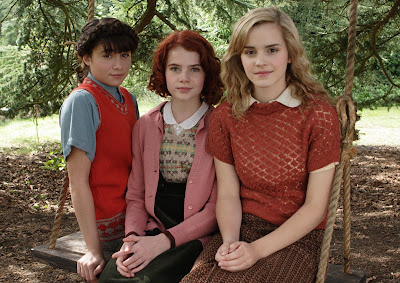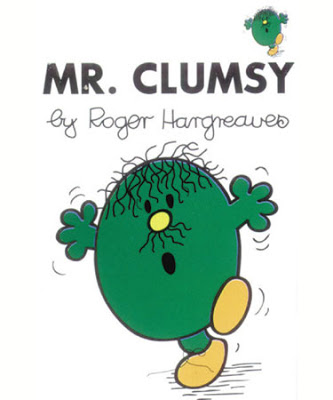Written by Max Thornton.
If people see a list of things I love – science fiction, fantasy, progressive rock, movies about zombies, witty and charming sitcoms that you will watch on NBC Thursday nights at 8/7c starting February 7 – they might be surprised to learn that I think ballet is awesome.
If people see a list of my favorite authors – a small selection: China Mieville, Ursula LeGuin, Alan Warner, J. G. Ballard, Margaret Atwood – they might be even more surprised to learn that some of my most dearly beloved childhood books are about ballet.
This odd and rather niche enthusiasm neither stemmed from nor translated to any interest in performing myself. Slightness of build, grace, agility, physical stamina, a right and a left foot instead of two lefts: I have never in my life possessed any of the attributes necessary for success in the field of ballet dancing. My single semester of lessons was a comedy of ineptitude for my watching family, and a crushing humiliation for me.
 |
| Me. |
All of which is to say, the depth of my love for Noel Streatfeild’s 1936 children’s classic Ballet Shoes might initially seem baffling. Until you read it, and learn how very very awesome it is. Alternatively, you could watch the 2007 BBC adaptation starring Emma Watson, which is very nearly as charming as the book.
Ballet Shoes is the story of three sisters, Pauline, Petrova, and Posy Fossil. Adopted from assorted circumstances of orphanhood by the eccentric fossil-collector Great-Uncle Matthew, or “Gum,” they are brought up by his great-niece Sylvia and her beloved nurse Nana while Gum is off on a decade-long expedition around the world. When poverty compels Sylvia to take in boarders, the Fossils’ lives change dramatically: they are sent to a stage school to learn dancing and acting.
Much of the story’s genius lies in the characterization of the three sisters. Beautiful Pauline is a talented actress who feels the responsibility of being the eldest sibling; dreamy, waifish Posy thinks of nothing but dancing, to the point of complete otherworldliness; Petrova is the tomboy, the middle child, and the odd one out, who loathes being onstage and is happiest around engines. This set-up creates a lovely interplay of strong, distinct personalities who are united by the loyal bonds of sisterhood, which is really the heart of the story.
 |
|
| Petrova (Yasmin Paige), Posy (Lucy Boynton), Pauline (Emma Watson) |
The adaptation is fairly faithful, notwithstanding the inevitable glossing over of details and eliding of the timeline. Two notable changes that, in my opinion, weaken the story are the character assassination of Winifred and Theo’s happy ending. Winifred is an enormously gifted actor and dancer, who is consistently overshadowed by the classically beautiful Pauline. In the book, she is also a genuinely sweet person and a stalwart friend to the Fossils; in the film, she’s rather bratty and unkind. Theo, one of Sylvia’s boarders, has no personal life to speak of in the book, but gets an unlikely reunion with a long-lost lover at the end of the film. I understand the motivation for these changes – they heighten the story’s fairy-tale feel: every character, good and bad, gets what she deserves – but they’re unfortunate from a feminist standpoint. Female friendship is undermined in order to perpetuate the tired trope of the jealous, spiteful girl; while the cleaning up of romantic loose ends reinforces the old chestnut that a single woman couldn’t possibly be happy.
Probably the biggest alteration made from the book to the film is the Sylvia and Mr. Simpson subplot. The book Simpsons are a happy couple, both boarders who act as friends and parental figures to the Fossils; movie-Simpson is a widower who lost his wife (and child, for added Tragic Backstory) to typhoid. Seeing that Mr. Simpson is the only male character of any presence in the story, he and Sylvia somewhat inevitably get a little romance.
This subplot has overtones of a lot of tedious cultural tropes, from the above-mentioned Unhappy Single Woman thing to the Wounded Man Who Can Only Be Healed By The Love Of A Good Woman, but on balance I think it’s a good thing. Sylvia gets very little characterization in the novel outside of her noble devotion to her girls; the love story is only one of several ways in which she is fleshed out for the film – she also gets an ongoing health problem and a rather charming unlikely friendship with Theo.
 |
| Theo (Lucy Cohu) and Sylvia (Emilia Fox) |
What I really love about this story (apart from the “lady doctors,” who are certainly a couple) is that it’s ultimately a story about sisterhood and chosen family. Three orphans, a young woman, an older nurse, two retired professors, a dancing teacher, and a widower – none of them related by blood – come together, mostly by chance, and constitute a family. That’s pretty progressive for 1930s Britain. The three sisters love each other dearly, but they also have dreams and big ambitions. Their familial devotion and their wild ambitions are never presented as being in conflict; in fact, it’s those very ambitions that bind them together, as they vow on every Christmas and birthday: “We three Fossils vow to put our name in the history books, because it is uniquely ours, and ours alone, and nobody can say it’s because of our grandfathers.”
At the end of the story, Gum – the patriarchal male figure who has been totally useless and absent from the entire thing – returns after a decade abroad. He asks in surprise, “Who are all these women? … I brought entrancements! I brought babies!” To him, the girls were souvenirs, fossils, which he brought back as presents from his globe-trotting exploits. In his absence, they have grown into a close family of faithful sisters and strong, ambitious women, and it’s because of their guardian and their wealth of female role models, and certainly not because of their grandfathers.
Max Thornton blogs at Gay Christian Geek, and is slowly learning to twitter at @RainicornMax.


I watched this film on Netflix a few months ago and found it really charming. I agree with most of your praises for the film and your criticisms – especially the contrived love story for Mr. Simpson and Sylvia. And yeah, I kind of enjoyed the subtext of the Professors’ relationship. Fairly progressive for a family film.
This is a nice blog to read and gives the gorgeous feeling about ballets. The shoes are the important part for any ballet dancer and it is quite necessary that one chooses the pair which suites them.
http://www.piedpiperchildrensshoes.com/product-category/ballet-shoes/